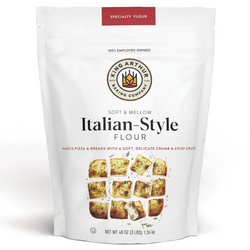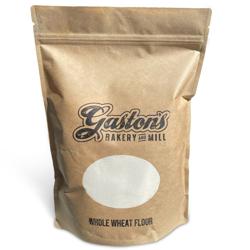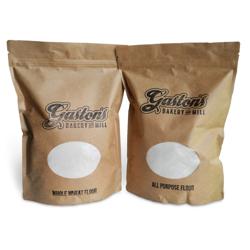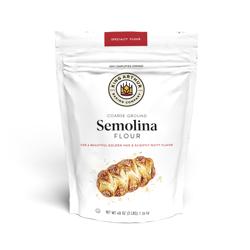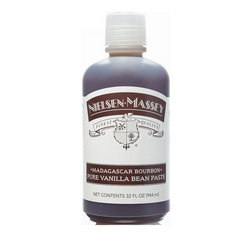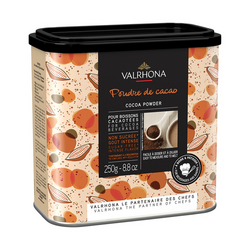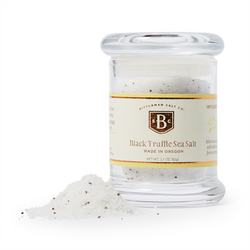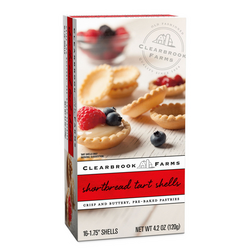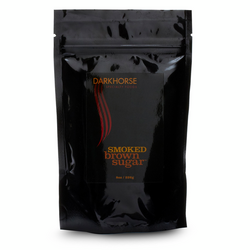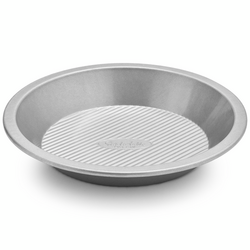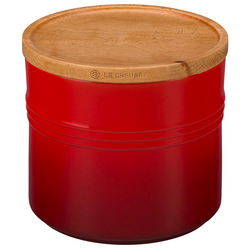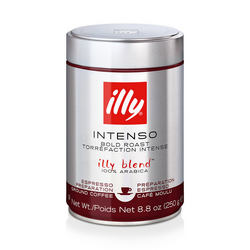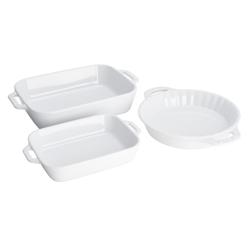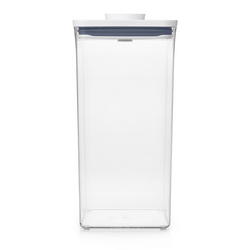-
(6)
Gaston Bakery All-Purpose Flour...Baking with flour is absolutely the best....Works fine for baking but I thought it would have a beautiful nutty flour smell and really level up my baked goods but sadly did not.
Pros: quality, taste, all-purpose
Add to Bag -
Lower in protein than all-purpose flour and mellower, this Italian-style flour from King Arthur yields supple, smooth, and easy to shape dough. The resulting baked goods are light, airy, and have a crisp crust. It's ideal for pizza, focaccia, flatbreads,...
Add to Bag -
Great for home baking enthusiasts, this assortment includes six bags of Gaston’s signature whole wheat flour. Each flour is carefully formulated to produce amazing results and contains only additive-free wheat. Gaston’s flours are milled...
Add to Bag -
(1)
Probably one of the best flours I've ever tried....I bake a lot and I do not care to spend more money to find very high quality flour, but this one takes it to the next level.
Pros: versatility, texture, quality
Add to Bag -
This soft yellow semolina flour from King Arthur has good looks, flavor, and multi-purpose functionality. Made from a coarse grind of durum wheat, semolina gives a nutty, sweet taste and pale-yellow color to breads, pizzas, and pasta. Substitute semolina...
Add to Bag
Baking Flour
Baking flour is an essential ingredient in many baked goods. These flours come in a variety of types, each with its own unique characteristics and uses. They are typically made from wheat, but other grains such as rye or barley can also be used. Here are some great options.
Baking Flour
Choosing the right baking flour goes beyond following a recipe; it’s about matching the flour to the occasion and the people you’re baking for. If you’re baking for friends or family who are sensitive to gluten, today’s selection of baking flour gluten free options ensures that everyone can enjoy homemade treats without compromise. These flours, made from ingredients like rice, almond, or coconut, are carefully crafted to mimic the texture and flavor of traditional wheat flour, making them an excellent choice for cookies, muffins, or even pizza crusts. When you’re thinking about gifting, a thoughtfully assembled basket of specialty baking flours is a welcome surprise for anyone who loves to spend time in the kitchen—perfect for birthdays, housewarmings, or as a summer hostess gift. For those who bake as a creative outlet, exploring different types of baking flours opens up a world of flavor and texture, from hearty whole wheat for rustic galettes to ultra-fine cake flour for celebration-worthy desserts.
No matter your experience level, stocking your pantry with a few key types of baking flour ensures you’re ready for any baking adventure. The aroma of fresh bread rising in the oven, the joy of sharing a homemade cake at a summer picnic, or the comfort of warm cookies on a rainy afternoon—all these moments start with the right flour. And as you perfect your favorite recipes, don’t forget that the finishing touches matter, too. Pairing your baked goods with a drizzle of rich syrup can elevate everything from pancakes to pound cake; for inspiration and options, explore our carefully curated selection of Baking Syrup. With the right flours and a little imagination, every bake becomes an opportunity to create memories, celebrate the season, and share something delicious with the people you love.
Top Picks For Baking Flour
FAQ List
All-purpose flour has a lower protein content than bread flour, which makes it a versatile option for a wide variety of recipes. Bread flour has a higher protein content, which gives it a stronger gluten structure and is ideal for making yeast breads and other baked goods that require a chewy texture.
It depends on the recipe and the flours you are substituting. Some flours can be used interchangeably, while others have unique characteristics that can affect the texture and flavor of the final product. It's best to consult a baking guide or recipe book for specific substitution recommendations.
Flour should be stored in an airtight container in a cool, dry place, away from direct sunlight. This will help prevent moisture and humidity from affecting the quality of the flour. It's also a good idea to label the container with the type of flour and the date it was purchased.
Gluten-free flour is made from grains or other ingredients that do not contain gluten, a protein found in wheat, barley, and rye. This type of flour is ideal for those with gluten sensitivities or celiac disease, but it may require different baking techniques than traditional wheat flour.
There are many alternative flours available, including spelt flour, teff flour, almond flour, coconut flour, and more. These flours can add unique flavors and textures to your baked goods, but may require different baking techniques than traditional wheat flour. It's best to consult a baking guide or recipe book for specific recommendations.

)
